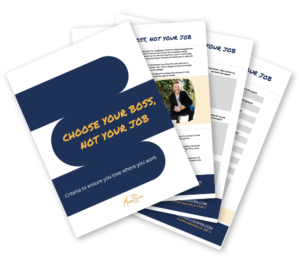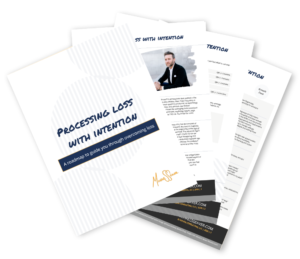Before sitting down to write this article, I had a conversation with a friend about LSD. (As one does during a typical workday…right?)
She had just listened to an interview with Michael Pollan, author of the book How to Change Your Mind, which is about neuroscientists using psychedelics alongside modern brain imaging technologies to learn more about the consciousness and the self. Several of the scientists Pollan profiles in his book believe psychedelics could revolutionize mental healthcare and our understanding of the mind.
So, what does this have to do with our careers or with professional development?
A lot, I think. In every corner of human endeavor, in every industry, and in every field, we are seeing the value of self-knowledge. We are seeking to know ourselves and our own minds with more depth. Sure, we all have different approaches—and I’m certainly not suggesting that psychedelics are among mine—but the goal remains the same: know thyself.
Once you know yourself, your motivators, and your preferences, it’s much easier to connect with others and build more meaningful relationships. I believe doing so is everything in terms of how engaged we feel in our careers and in walking our life’s journey.
Stack the Deck
When you are joining a new organization or a new team, and you don’t set expectations with your new boss, or take the time to share a little bit about who you are as a person, problems will likely arise. So, my suggestion is simply this: You can stack the deck in your favor if you set expectations on the front side of the relationship with your new leader.
I believe there’s power in narrative. Sharing the story of our lives with our boss creates new levels of empathy. This helps deepen the relationship, establish trust, and move our organizations forward cohesively.
Relationships based purely on data, or on transactions (“Do what you’re told to do because I’m paying you”) are disconnected, unproductive, and underperforming. If we’re not appreciating ourselves for who we are and we are not sharing ourselves with the people we work with, we’re going to be disengaged. My life’s mission is to help people feel a sense of accomplishment, peace, and belonging at work.
So, how can you do that?
If you are getting a new boss, starting with a new team, or picking up a new project, here are some concrete ways you can set expectations and share your story effectively to build a stronger relationship with your leader:
- Explain 2-5 ways you enjoy being communicated to. What are the things you like to have said to you, that make you feel validated and heard? What are some phrases that are harmful to you in a dialogue?
- Share what motivates you. Understanding your own motivations, whether you achieve this by personal reflection or by taking a formal assessment such as the 12 Driving Forces, is huge. Motivators are the unobservable “why” that guide our decision-making; the factors that most shape our choices.
- Share your strengths, skills, and talents. There’s value in recognizing these things in yourself and then sharing them with your boss, because once you do, you may spend an increasingly larger percentage of your day completing tasks that leverage your strengths.
- Let your boss know what they can say or do when your behavior veers off track. Talk through how you’d like them to communicate with you when you are visibly off, not meeting deadlines or not in alignment with your goals. What is the thing your boss can do that will help you feel whole when you’ve made a mistake?
- Communicate how you like to receive appreciation. Then, ask your leader to recognize you in that way when you have wins. It could be public recognition in front of the entire team, possibly online recognition, it might be a small gift card.
- Share your short and/or long-term goals. Perhaps you want to pursue a certification, maybe you’re thinking about traveling more. Whatever your goals may be, if your leader knows what they are he or she can help open serendipitous doors.
- Share your personal mission or life’s purpose. What problem is it that you exist to solve for other people? If your boss knows your purpose, they can help connect the organization’s mission to your personal mission so you feel a stronger connection.
- Communicate the type of organizational culture you thrive in. If there’s a way your boss can help to create that around you, it’s very engaging. When a flower is not blossoming or blooming, you don’t fix the flower. You fix the environment in which it is growing. You give it more sun, or more water, or new soil. I want you to understand you’ll feel much more engaged if the office culture is a fit for your preferences.
The theme here, of course, is the value of attaining self-knowledge and then parlaying that knowledge into effective communication via narrative. Sharing all of the items above (or even some of the items above) requires a level of trust—you have to take a bit of a leap and trust that when you share your story and preferences, the information will be well-received. I think this is why it is so important, as I’ve written before, to choose your boss and not your job. The quality of the relationship you build with a boss is a major determinant of your success and happiness in your career.
According to a LinkedIn study, the Millennial generation will change jobs an average of four times in their first decade out of college. So, it is possible you’re getting a fair number of reps at meeting new bosses. If you can recognize the value of sharing this information about yourself and make it a habit, you will go further, faster.
Leaders: Are You Seeing the Possibilities?
Now, let me speak for a moment to the leader helping a new individual onto a team. We should all be a possibility-tarians. In other words, think about how to create possibilities for the people who work for you. How do we as leaders become moment-makers?
Back in the 1970s, 80s, 90s, Corporate America got a reputation for being strict, for having a lot of rules, for not allowing mistakes. Society has rapidly transitioned to a place where we’ve focused more on empowering our workforce, connecting them, and equipping them with the right tools to make them successful. This transition requires us to have these more in-depth dialogues. Leaders should be constantly communicating our philosophies. We have to “manage up” to those philosophies, and the only way to do that is to continuously share them and lead by example.
I recently had the opportunity to emcee FEI’s 2019 Leadership Summit in Orlando, Florida. One of the presenters there, Craig Kielburger, shared a story about getting a group of people together to build a school in a third world country. What he learned from that experience was that the development of community—of meaningful relationships—was the most important part of what the group was doing.
The more we proactively communicate our message, and the more we proactively help one another, the faster an organization grows. As a result, the organization will be more profitable and successful, because a group of people can always accomplish more together than they can separately.
Especially if they’re on LSD.






Connect with me